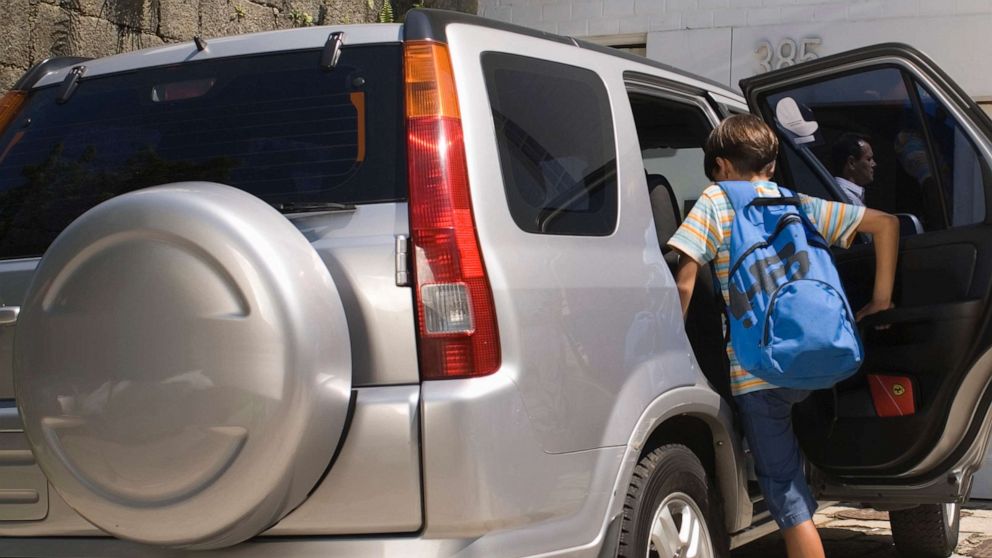


As schools get back in session and more employees return to the office amid the coronavirus pandemic, health officials are warning about the potential risks of commuting together in cars, whether through neighborhood carpools or ride-share services.
"They're shedding virus in their mouth and their nose and they're speaking and talking, and in a small car, that individual is certainly going to transmit virus to the members of that car," Dr. Juan Salazar, a pediatric infectious disease specialist and physician-in-chief at Connecticut Children's, told "Good Morning America."
Officials in both Connecticut and Rhode Island have warned that they are seeing clusters of COVID-19 cases from informal gatherings, including carpools.
With more than 8.3 million diagnosed cases of COVID-19 in the United States since the start of the pandemic, health officials are now sharing tips for how people can stay safe when sharing cars, whether in an Uber to work or a carpool to soccer practice.
MORE: Thanksgiving safety amid COVID-19: Here's what you should consider to stay safe"When you think about sort of the ways in which we're preventing transmission, it's not just one or the other," said Dr. John Brownstein, an epidemiologist and ABC News contributor and the chief innovation officer of Boston Children’s Hospital. "It's a multi-layered strategy."
1. Wear a mask and wash your hands. Wearing a face mask is a must, experts say, as well as using hand sanitizer or soap and water to wash your hands after leaving the car. The U.S. Centers for Disease Control and Prevention (CDC) also recommends cleaning and disinfecting surfaces often.
2. Stay in the same carpool cluster. The CDC recommends both limiting the number of people in the car and riding with the same people day to day.
"Your additional contacts lead to potential risk so if you maintain the same contacts, you will reduce your own risk and the risk of spreading to others," said Brownstein.
3. Check your air conditioning mode. Set the air conditioning or heat in your car on non-recirculation mode, according to the CDC. This way you're bringing fresh air inside the car to dilute any possible virus particles in the air.
MORE: New study shows how students around the world are returning back to school amid COVID-194. Sit far from the driver. In a rideshare, the best seat is the one as far as possible from the driver, likely the rear seat diagonally across from the driver, according to the CDC.